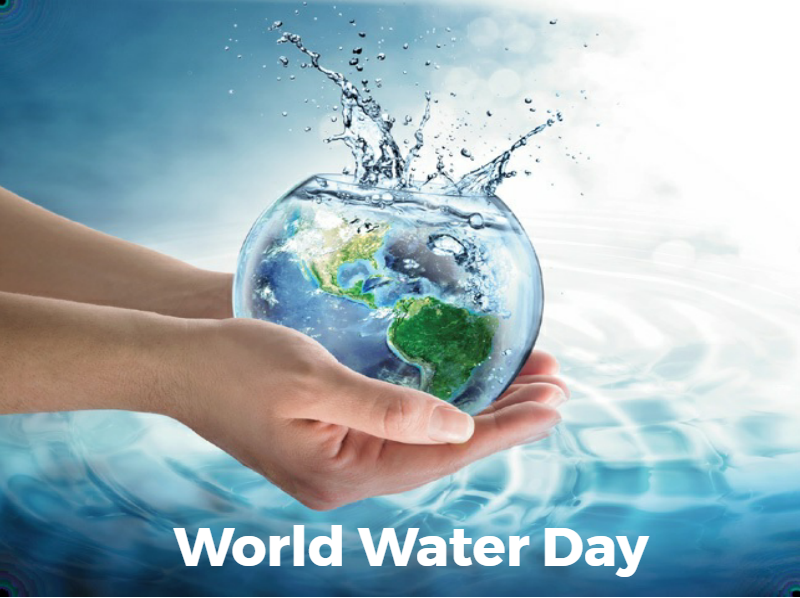
World Water Day
When small steps become big steps
Any idea which industry is the world’s biggest user of fresh water?
No prize for guessing correctly that it’s agriculture. Whether we’re using it for cultivating crops, growing fresh fruit or raising livestock, our global agricultural industry consumes more than 70% of the world’s fresh water.
Growing food is a necessity, of course. But agriculture is competing for that resource – not least with the two billion people worldwide who don’t have access to fresh water supplies themselves.
This ‘water crisis’ lies behind the UN’s World Water Day initiative, held annually on 22 March. As the UN says, ‘dysfunction’ in the water cycle undermines progress on all major global issues, not just hunger and health but also gender equality, jobs, education, industry, natural disasters and preserving peace.
At FertiGlobal, we talk a lot about the importance of sustainability in agriculture: it’s one of the guiding principles that inspires our business. Yet we can’t pick and choose our approach to sustainability: agriculture relies on many natural resources. We can’t view it in isolation.
Water use, and availability, is a good example: Clean Water and Sanitation is the UN’s Sustainable Development Goal 6. As we’ve said before, FertiGlobal can’t solve these problems alone, but what we can do is to help farmers be at the centre of any process of change that involves natural resources. Agriculture’s use of water can be improved. We’re committed to helping farmers realise that improvement in resource use, and that is why we’re proud to support World Water Day.
Our own initiatives
We need to help our farmer customers face the challenges of modern agriculture. It’s why we’ve chosen the route of bioactives and advanced crop nutrition solutions.
We know that a healthy plant is a productive plant. So our products often focus on boosting the plant’s own defence systems. A healthy crop in the field allows farmers to reduce the use of chemicals, such as fungicides.
A healthy plant, with a well-functioning defence and immune system, also improves crop resilience. The UN recognises the importance of crop resilience for reducing water use: climate change will likely lead to reduced rainfall, shortened rain-fed growing seasons, and higher temperatures. Unchecked, all have the potential to cause an increase in the agricultural demand for water – but if, thanks to the use of bio-actives and other crop care products, we can improve crop resilience, then we may be able to allay that extra call on our precious water resources.
Technique also plays a part. Modern fertigation systems – in which many of our products are designed to be used – can help farmers make more efficient use of water, while improving crop yield and productivity.
Theory into practice
For example, let’s look at the results of a trial in maize, conducted by our R&D team to assess the effectiveness of one of our Foliflo Technology products, Rumis. This new generation fertiliser has been designed to support plant growth, particularly at times of external stress – such as when seedlings are transplanted, or when subject to less-than-prime water availability.
Containing the micronutrients boron and zinc, as well as biostimulant compounds derived from Ecklonia maxima, a variety of seaweed, Rumis is ideal for fertigation use (although we’ve also successfully used it in drone applications, too!). In the trial, Rumis’ effect on root development was clear, with:
- faster growth
- more biomass production, especially with fertigation application
- improvement in all root parameters – weight, length, volume and surface
How can what appears to be a relatively small improvement – some better roots in maize – have any connection with World Water Day?
Two-fold: first, a more robust root system is a healthier root system. That’s beneficial in any crop. Healthier root systems mean healthier crops; healthier root systems mean more resilient crops during times of stress, such as drought. Healthy root systems mean crops can continue growing when soil moisture is less than optimal, reducing the need for artificial irrigation.
Second, sustainable agriculture is all about small steps and small improvements. But when there are nearly 600 million farms in the world, small steps suddenly become big steps. And if all of us are making those small steps, together we achieve a lot.
And that’s our objective at FertiGlobal: helping our customers be the change they wish to see in the world.

